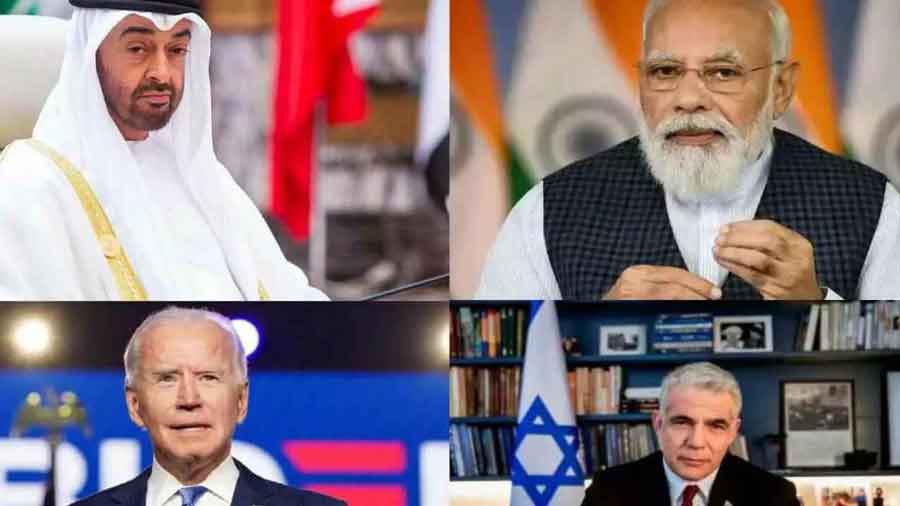Any group of friends works best when the collective is greater than the sum of its parts. That will be the test for the new grouping of India, Israel, the United States of America and the United Arab Emirates, with the kitschy name of I2U2, whose leaders met virtually for the first time last week. Individually, India has strong relations with each of these nations, built over years of meticulous diplomacy by successive governments, including that of Prime Minister Narendra Modi. After last Thursday’s summit, the I2U2 announced a $2 billion investment by the UAE in Indian food parks and support from the US, Israel and the UAE for a solar and wind energy project in Gujarat. The Middle East is in the midst of reconfiguring traditional alliances, with a growing number of regional nations recognising Israel for the first time. At such a time, it is in India’s interests to ensure that it has a seat at as many tables as possible. But a successful grouping needs a strong glue to keep it together. What that is for the I2U2 is unclear.
The US and India would like the grouping to counter China’s growing influence in the Middle East. Meanwhile, the UAE and Israel would like broader support against Iran. But neither of those two visions enjoys acceptance across the I2U2. Israel’s former prime minister, Benjamin Netanyahu, once described his country’s ties with China as a “marriage made in heaven”. China was Israel’s largest source of imports in 2021. It is also the UAE’s biggest trading partner and a major buyer of the Gulf nation’s oil. Israel and the UAE have no reason to rethink ties with China. It is a situation very different from that in the IndoPacific where each of the Quad members — India, the US, Australia and Japan — views China as a threat and wants to collectively offer the region an alternative power centre to Beijing. On Iran, India will not want to position the I2U2 as an anti-Tehran platform. India and Iran have recently resumed long-dormant efforts to operationalise a transit corridor that connects up with Russia. When the I2U2 was first announced, the name drew joking comparisons with Bollywood films of a certain genre from the 1990s that had similar abbreviations. Those movies were about divided families and friends struggling to come together, despite clear affection for each other. The I2U2 must pay heed: it does not want to get reduced to a Bollywood stereotype.











